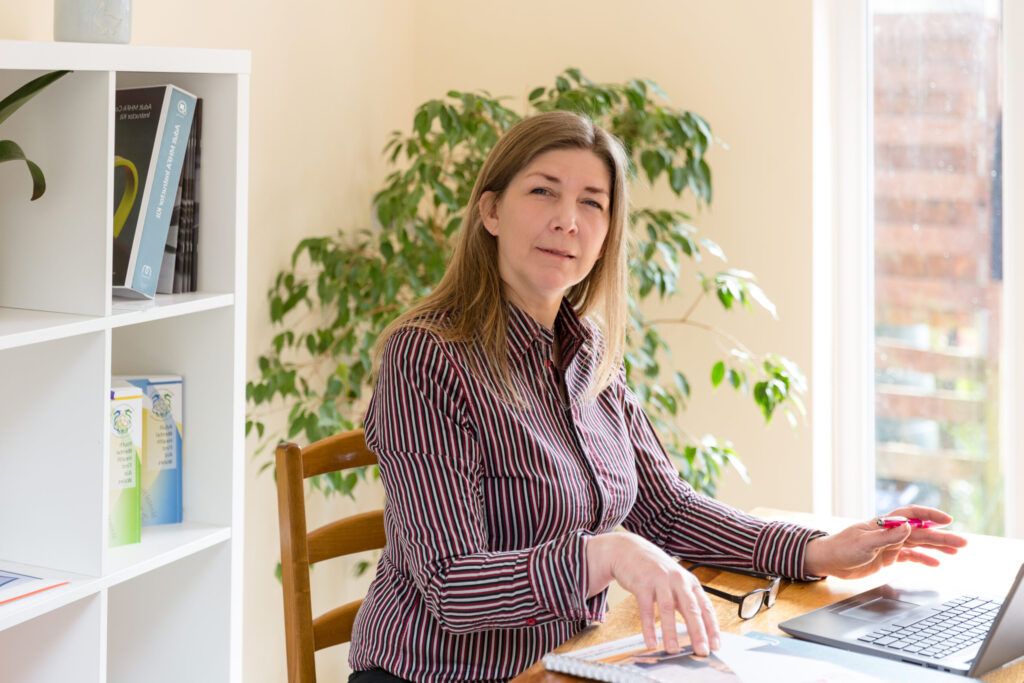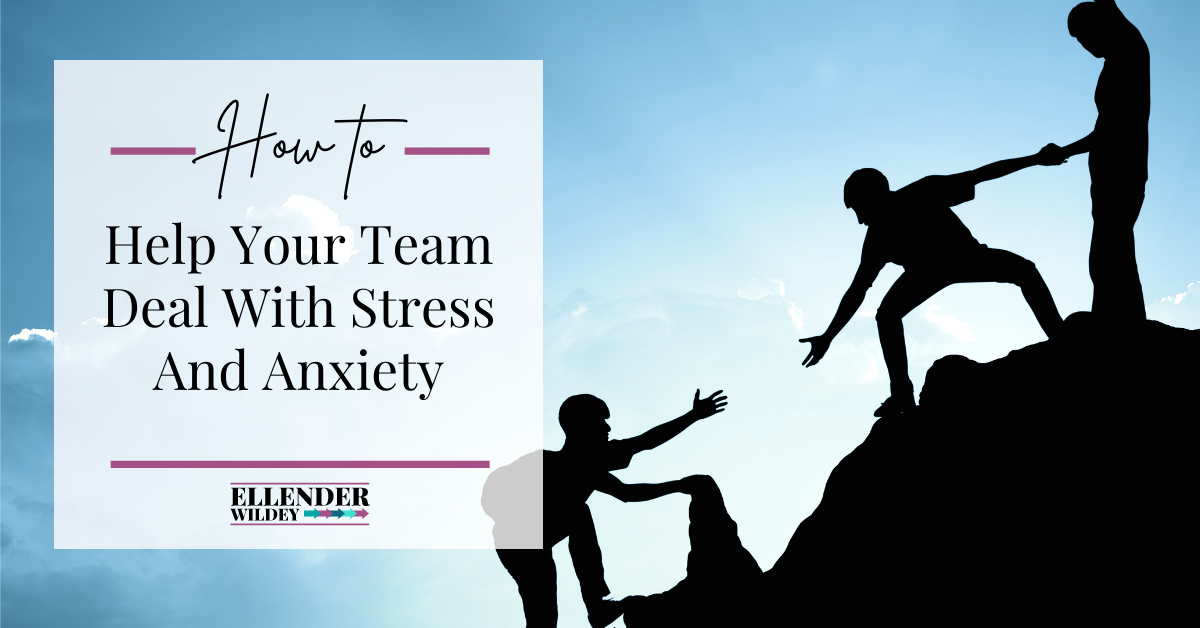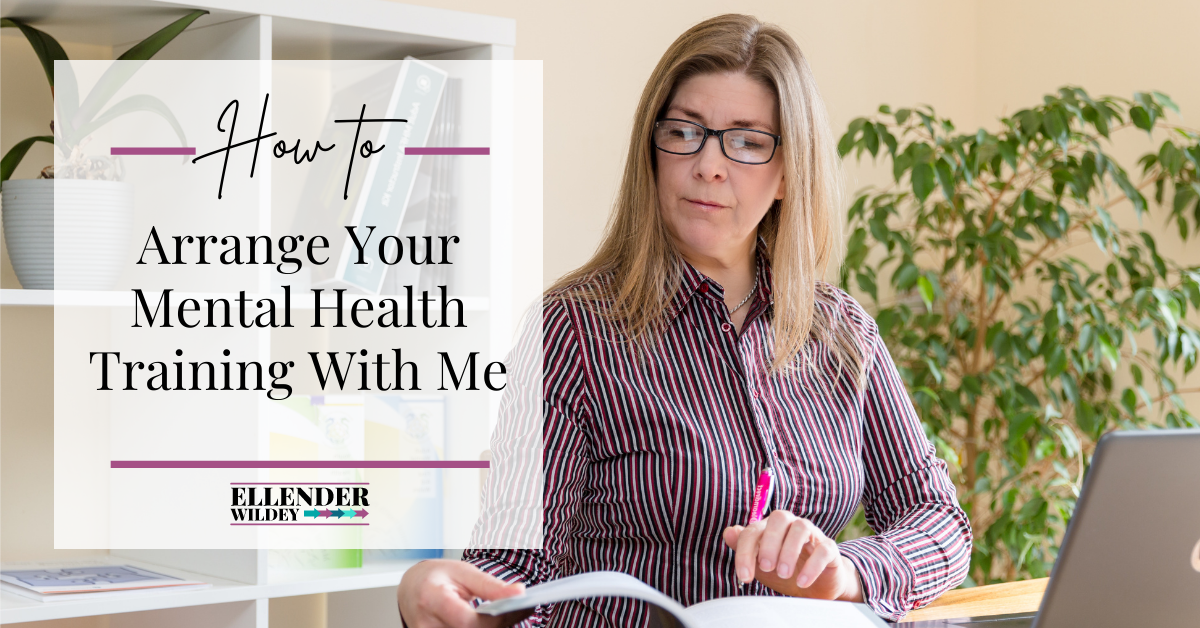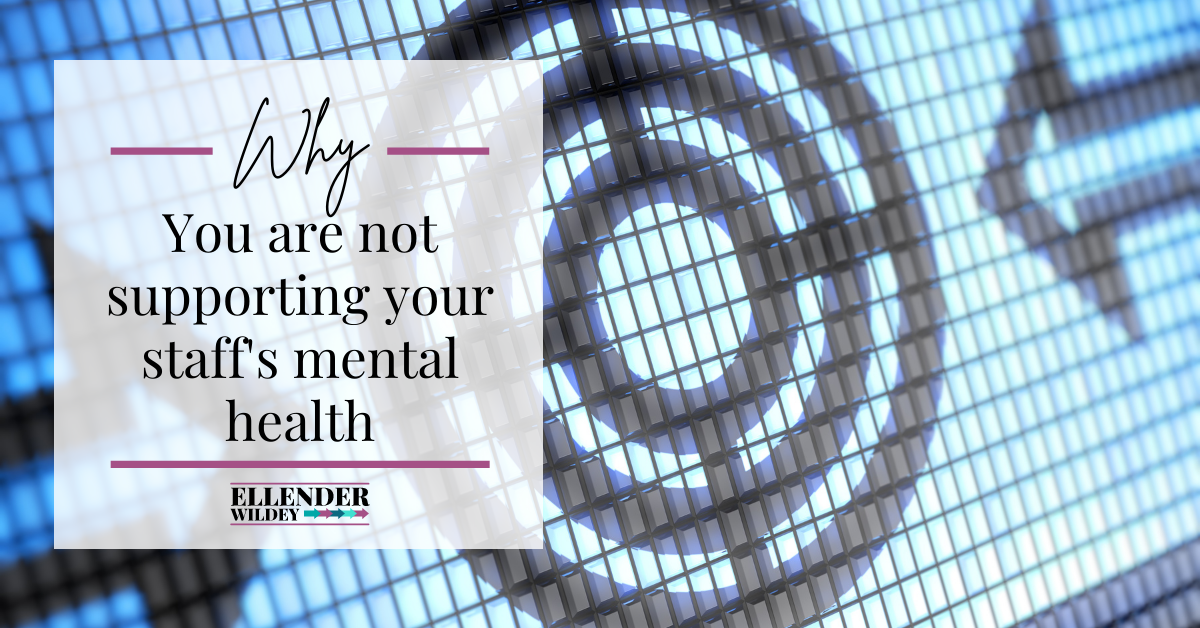Looking after and improving your mental health and well-being is important as it helps you manage all aspects of your life, both at home and at work. In order to support your own mental health and wellbeing, positively, your body needs to function as best as it can. You will soon see the benefits when you take responsibility for yourself by taking care of both your physical and mental health. You will be able to cope better with the challenges that life brings you and be resilient and less prone to the onset of mental ill-health.
There are many ways in which you can achieve this and the types of things you can do will, in fact, generally take care of both at the same time. Some of these positive steps that you can all take are going to be obvious – let’s be honest, you are likely to know most of these already! Yet, how many of these straightforward steps do you actually follow? By that I mean regularly follow, week in, week out, fifty two weeks of the year?
According to Dr Phillippa Lalley, a research associate in health psychology from University College London, it takes an average of 66 days for a new behaviour to become automatic. Therefore, it is a long-haul commitment to lifestyle change, for the benefit of your mental health. It is not simply a New year’s resolution type of approach, lasting a few weeks before being completely forgotten about.
What is mental health?
What exactly do I mean when I talk about mental health? What does that mean to you? If you were to ask anyone for their interpretation or understanding of the term mental health and what that means to them, their response may differ from yours.
Often, mental health is thought of as a negative thing, an illness or struggle. When I ask this question when I am delivering Mental Health training courses, participants regularly say, “I don’t have mental health.” It can be misconstrued as mental ill-health.
Yet, we all have mental health as we do physical health, all of the time, everyday. It is sometimes good, sometimes not so good. We all have good days and bad days, ups and downs and that is the true course of life.
In my courses, I teach the meaning of mental health and how it can constantly change is explained in depth. For the purposes of clarity now, the World Health Organisation briefly describes mental health as:
‘a state of well-being in which the individual realises his or her own abilities, can cope with the normal stresses of life, can work productively and fruitfully and is able to make a contribution to his or her community.’
With this explanation in mind, let’s look at the steps you can try to take to help support your mental health as best you can – I will then explore each one in more detail.

7 Steps to improve mental health
1. Eating a healthy, balanced diet
Eating well is more than the food choices we make. It also includes the regularity of our mealtimes too. Our bodies need regular vitamins, minerals and iron to function well and healthily.
It is known that when we are deficient in, for example, iron or vitamin B12, it can negatively affect our mood. Being aware of what we eat and the nutrients we can get from our choices is important. A little research will help your understanding of the importance of all the food groups and, therefore, what a balanced diet should look like. Plus trying to avoid too much processed food and swapping instead for plenty of fresh food, aiming for your 5-a-day of fruit and vegetables.
By no means cut out all of your favourites. Enjoying your go-to, homemade, chocolate brownie can also enhance your mood as you are indulging in something that makes you feel good – just not everyday though!
Keep an eye on your caffeine intake too, particularly as we as a nation are drinking stronger ground coffee more than ever. I know that this is my vice and, therefore, I need to keep count of just how many I am consuming throughout the day.
Be aware that caffeine can escalate any underlying feeling of anxiousness. If you live with an anxiety disorder then it may be worth trying out decaffeinated options. The physical feelings from caffeine overload can be similar to the symptoms of anxiety. Therefore, it makes sense to lessen these feelings and improve your mental health by changing something about which you have control, by cutting down or cutting out caffeine.
My key message here is when treating yourself, everything in moderation.
2. A good night’s sleep
When it comes to sleep, your well earned rest, forget about moderation and instead think of abundance! Sleep is a vital commodity for you and will improve mental health and physical health too. I am sure we have all experienced a bad night’s sleep and have you then found the next day more of a struggle? An inability to concentrate as well as normal? Perhaps avoidable mistakes were made as a result?
Without enough sleep your mood can be affected. You can feel more anxious and have depressed feelings, a low mood. Imagine poor sleep for days on end and the impact on everyday life and your ability to cope with the normal stresses that you face. Remember the World Health Organisation’s description of what mental health is?
Sleep allows you to not only re energise for the next day, but also to regulate the chemicals found in your brain that helps you function at your best.
During my training courses, you will learn how changes in sleep patterns can be an indication of a developing mental health problem. This can be a useful warning sign for your own mental health or that of a family member who may need your support.
3. Exercise and physical activity
Physical activity is another essential when maintaining and improving mental and physical health. Not all of us are capable of a 5km run each morning, I know I certainly am not, on any morning for that matter! However, we are all able to incorporate being active in some way in our day to day lives. Perhaps a gentle walk, using the stairs regularly or even gardening is more your thing and will still count towards your daily exercise. Or how about listening to your favourite music and moving to the rhythm for ten minutes a couple of times a day? You can find something that suits you and is achievable when it comes to exercise.
Whatever your chosen favourite activity is, any exercise is great for your mental health. Why? Because when you exercise, your body releases chemicals called endorphins in your brain that lift your mood by triggering a positive feeling. Add to that the release of mood modulator, serotonin, which is often found in low levels in people with depression. These chemicals are the perfect mix to enhance your mood and keep your mental health in a more positive place.
Exercise, therefore, helps to alleviate stress and anxiety which are often found to be precursors to developing mental health problems. It makes complete sense to incorporate any form of physical activity into your everyday life.
As a Mental Health Instructor, I encourage my participants to engage in a regular activity of their choosing. I challenge them to partake in an activity in between the webinars and share how they feel once accomplished. By looking after and improving your own mental health you are better equipped to support someone else with theirs.

4. Spending time outside
So, if your chosen physical activity in Step 3 is an outdoor form of exercise then you will have ticked this one off already!
Spending time outside is an important step towards maintaining and improving mental and physical health, as sunlight enables our bodies to absorb Vitamin D. Low levels of Vitamin D have been found to correlate with depression and low mood. Also, Vitamin D deficiency presents similar symptoms to those of depression, for example, anxiety, suicidal thoughts and overwhelming feelings of hopelessness.
What better way to increase your body’s intake than by being outside? This is particularly important to consider for anyone who is currently working from home who may already feel isolated and lacking support. By going outside and adding that to a physical activity, improvements in personal well-being and mental health will be achieved.
In addition are the benefits of being surrounded by nature, which can be relaxing and also by being outside you are ‘blowing the cobwebs away’, helping to remove feelings of stress and clearing the mind.
5. Cutting out alcohol, smoking and drugs
Alcohol, smoking and drugs all have an impact on the body physically, these are mostly negative. They can also negatively affect you mentally, particularly when your body is experiencing withdrawal.
Take a smoker as an example. Once a cigarette has been smoked, withdrawal symptoms from the nicotine are experienced before the next cigarette is smoked. The smoker will start to feel irritable and anxious which leads them to need to smoke again. Indeed, at times when they are experiencing other factors in their life affecting mood and mental health, the withdrawal exasperates this.
Some drug use can often result in withdrawal, causing low mood and anxiety. Severe effects of drug use can include paranoia and delusions, symptoms of psychosis. Research indicates that drug use is related to the development of mental health disorders like schizophrenia. Both alcohol and drugs can mask negative feelings without solving the cause and can have a huge impact on a person’s life that affects them physically, mentally and psychologically. In the Mental Health First Aider training course, you will explore more about the negative effects of drugs and alcohol plays on lives in both the short term and long term with often devastating results. A full course breakdown of topics, including substance use disorder, are available on my training pages. Click here for my services page for more information about my mental health training courses available to you.
So, clearly, even avoiding moderate use seems to be the best course of action for your body, physically and mentally. If you won’t cut it out, then at least cut it down to improve your mental health.
6. Getting involved in social activities
The advice here is simple. By keeping busy and getting involved with different activities, you can and will benefit mentally.
The potential list of inspiration would be long and also diverse. So, let’s look at some examples: It needs to be something that you enjoy, say painting or photography, cooking, archery, football, walking. The list of possibilities really is endless. By taking an interest in a hobby, it keeps your mind occupied, passing the hours, full of satisfaction and productivity. If you spend time doing nothing, you can become irritable and unhappy.
A hobby then could become an activity that you can do as part of your community. This then leads to connections, social contact, other people with their views and inspiration. If you are not keen on a hobby, then perhaps look into volunteering in your area. This gives you purpose and more connections. Simply by spending at least ten minutes socially engaging with others, your memory improves and so does your mood. Helping others helps with self esteem and self confidence, all great factors for improving your mental health and well-being. Another step where abundance can produce the best results.
7. Reaching out for, and to, help
All of the previous steps are important, but perhaps this final step is the most important of all of them to improve your mental health and well-being.
Quite simply, if you are struggling with your mental health, reach out to someone and ask for help. The first step may feel the scariest, but can be the very start of the recovery you deserve and the support you need. There is no shame in needing some support. By all means help yourself and follow the steps, but reach out too as communication is important for recovery.
If you know someone who is struggling at work or at home, whose normal demeanour has changed, ask them if they could benefit in some way from your help. Join me in my courses to learn how to be confident in knowing how to reach out and help someone with their mental health.
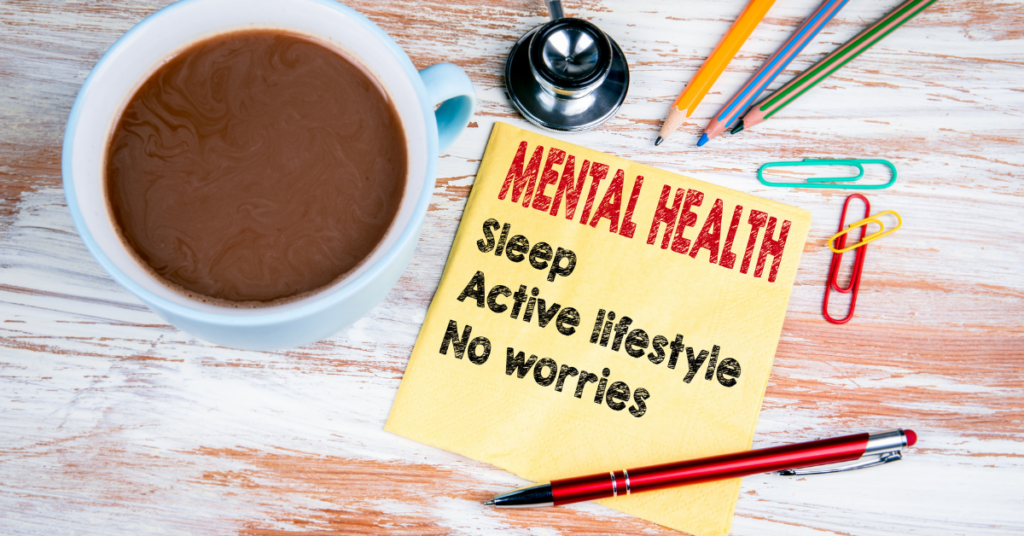
These 7 steps are achievable ways of helping strengthen and improve your mental health. When you are supporting someone, you will benefit from training to find out how to help and the warning signs that could indicate that things are worsening.
Mental Health training is not just for the workplace. It is important in your community and home too. Too often, professional help involves a waiting list and the demand for mental health support is growing. Knowing how to support others while they seek professional help is so important and empowering too. There are many resources available that can be easily accessed to begin the journey of getting help for mental health difficulties. The NHS website has excellent resources on how to look after your mental health with their campaign, Every Mind Matters with lots of information and signposting for mental health support. Find out more at www.nhs.uk/every-mind-matters/
Find out more about the mental health courses I provide on my services page by clicking here that will enable your organisation to improve knowledge and confidence surrounding mental health.
Contact me and let’s discuss how I can help you begin your mental health training strategy and training to improve mental health support in your organisation.
